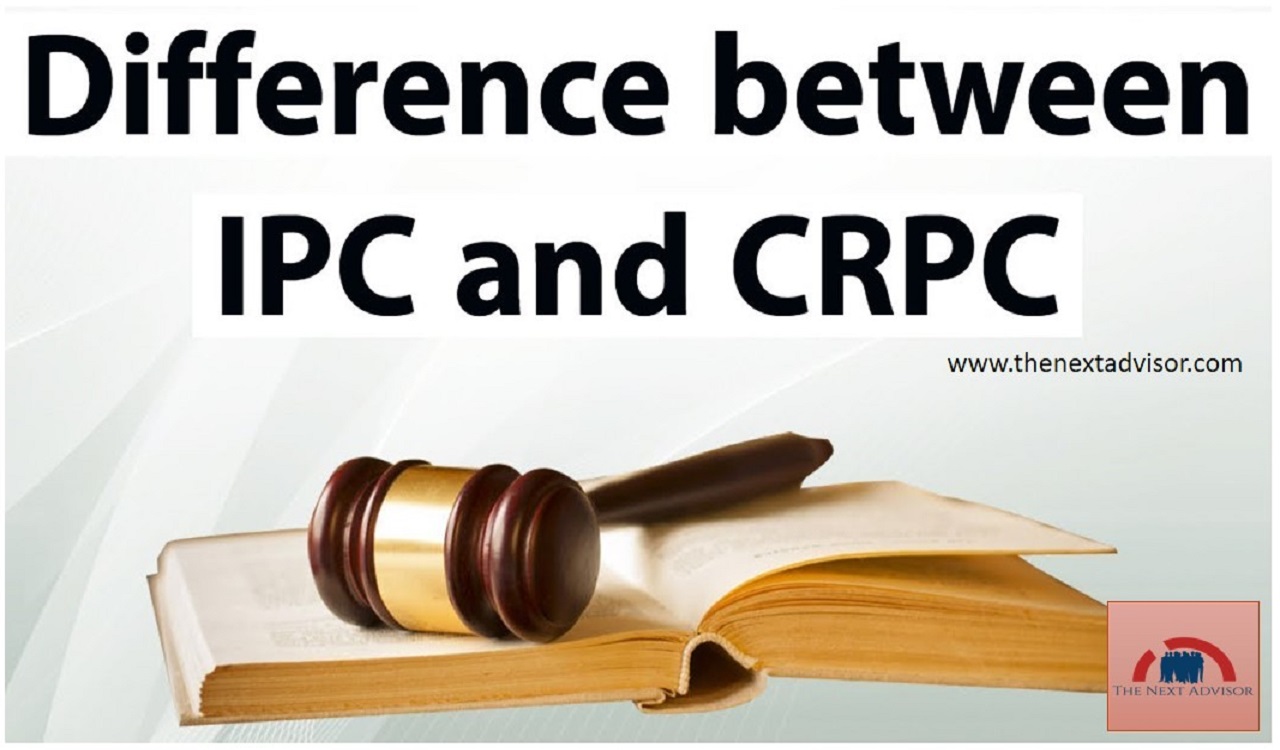Hello Friends, Difference Between IPC and CRPC.
Today I will tell the difference between the most important sections of India.
IPC means the Indian penal Code.
And CRPC means Criminal procedure Code.
IPC and CRPC are the most important parts of the Indian criminal justice system. So, all the Indian laws can easily classify it into two parts. The first is Substantive laws. And second is procedural laws. So, the Substantive laws define the offenses. And for which offense and type of punishment is prescribed that is also mentioned in the Substantive laws. Now, “Procedural laws” So these laws show how to implementation of Substantive laws. Now, let’s go to understand the difference between IPC and CRPC.
So, guys IPC is a Substantive law. Why? because in it there is a definition of every offense and punishment for every offense. So, Whenever there is an offense committed police use IPC to create a char sheet. But, the work after this comes under the CRPC. This means when to arrest that person, When can he apply for bail, How to collect the evidence, How to investigate, what is the procedure for that, etc are comes under the CRPC. So it’s the basic difference between both them.
Now, let’s go to understand the IPC and CRPC deeply.
Firstly – IPC So in 1834, the first law commission of India is appointed. and the chairmen of this are “Lord Thomas Babington Macaulay ” and four other members.
The commission had the following tasks:
1 – Codification of penal laws in India.
2 – The law applies to non-Hindu and non-Muslims.
3 – Codification of civil and criminal procedural law.
This draft of IPC was prepared by 1837 and became law in 1860. IPC is mainly the work of Lord Macaulay and on account of it. it is called ” Macaulay’s code “.
Now, the next is CRPC.
So, it is the main legislation of India that defines the procedure. Like, investigation of crime. apprehension of suspected criminals. collection of evidence. Determination of guilt or innocence. Determination of punishment of the guilty. In past, East India Company did not have courts in different civil and criminal justice systems. But after the Revolt of 1857, the crown took over the administration in India. And the British parliament passed – The criminal procedure code, in 1861. After that, the first law commission of India is set up in 1955 and the chairman was MC Setalvad.
He makes the three principles.
1 – That an accused should get a fair trial by the principles of natural justice.
2 – That every effort should be made to avoid delay in investigation and trial.
3 – That the provider should not be complicated, and ensure a fair deal to the poorer sections of the community.
I hope you understand this topic completely.



























